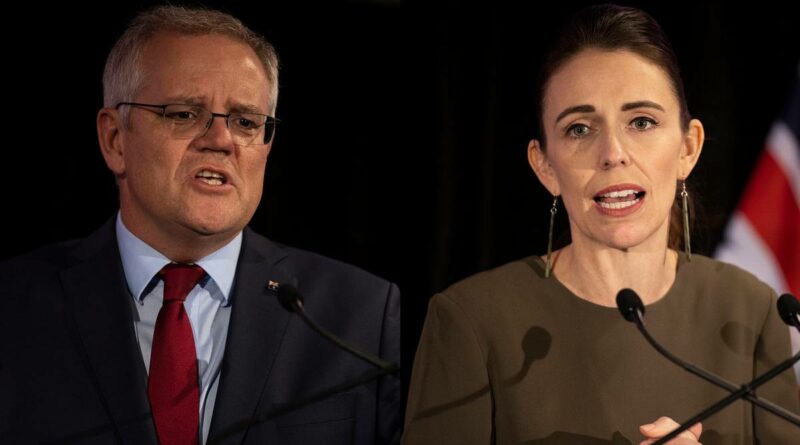Audrey Young: Stark contrast in political management as Aussie election nears
OPINION:
You tend not to notice political management unless it is done badly – and by crikey there has been a lot to notice in Australia recently, compared with New Zealand.
Events across the Tasman have also reinforced the generally held view that the factionalised politics there, be it Liberal or Labor, are more vicious than here in New Zealand.
The stark differences in political management occurred this week when Prime Minister Jacinda Ardern and her Australian counterpart, Scott Morrison, were both involved in managing the exits of sitting members.
One went like a dream, the other was a horror show.
In New Zealand, Labour list MP Louisa Wall announced her resignation about halfway through Ardern’s second term.
It was part of a private negotiation that took place during party selections in 2020 to avoid any legal challenge by Wall to the selection of someone else to stand for Labour in her Manurewa seat.
Once the announcement was made on Tuesday, Ardern had some generous things to say about Wall and her contribution to Parliament.
The horror show unfolded in Canberra. Only weeks away from an election, Concetta Fierravanti-Wells was effectively deselected last weekend by having been given an unwinnable place in the party’s ticket in New South Wales. There was no disputing who she blamed.
She delivered a stunning unofficial valedictory in which she called Morrison an autocrat, a bully with no moral compass and someone unfit to be Prime Minister. She said he had no conscience and had “used his so-called faith as a marketing advantage”.
To make matters worse, it was the same night Treasurer Josh Frydenberg delivered his Budget in the leadup to a campaign in which Morrison’s Coalition will be the underdog.
Needless to say, the vitriol unleashed by Fierravanti-Wells proved a distraction to the A$8 billion ($8.61b) in temporary and targeted relief for the soaring cost of living – including a cut in petrol excise similar to that announced two weeks ago in New Zealand.
But the significance of the Liberal wars spilling into the public was not just because of the disunity it represents in the party of Government and not just because it attacked the character of the Prime Minister.
It neutralised a weeping wound of a tragi-mess that had enveloped Labor since the sudden death of Melbourne Senator Kimberley Kitching on March 10 from a suspected heart attack.
In the wake of her death, friends had painted a picture of an effective senator who had been demoted, ostracised and stressed out by Labor’s Senate leadership triumvirate nick-named “the Mean Girls” – Penny Wong, Kristina Keneally and Katy Gallagher – in the belief Kitching had leaked info to the Liberals.
Morrison said Labor leader Anthony Albanese was “gutless” and lacking leadership for not holding an inquiry into the alleged bullying of Kitching.
Now that disaffected members of Morrison’s own team have called him a bully, it is not an issue he can mine with any credibility.
Morrison is due to announce the election date any day now but he has said it will be in mid-May.
He pronounced his win in 2019 a miracle and that would apply even more so this year, with the Coalition having been in power for nine years, and well behind Labor in the polls.
But Morrison is a strong campaigner. Labour and National will be watching closely to see if there’s anything to learn from Australia, and that includes what not to do.
Source: Read Full Article


/cloudfront-ap-southeast-2.images.arcpublishing.com/nzme/R37TKBQJ5SH2C3YFHWCHZ4UD2M.jpg)